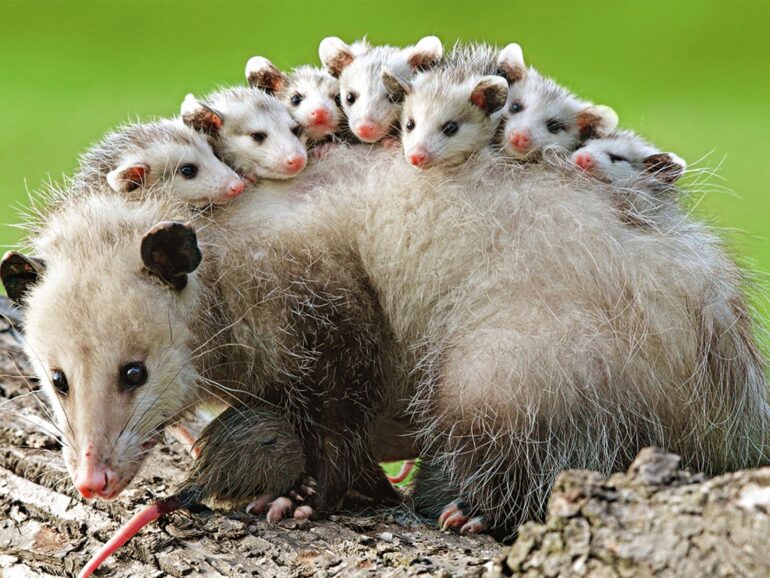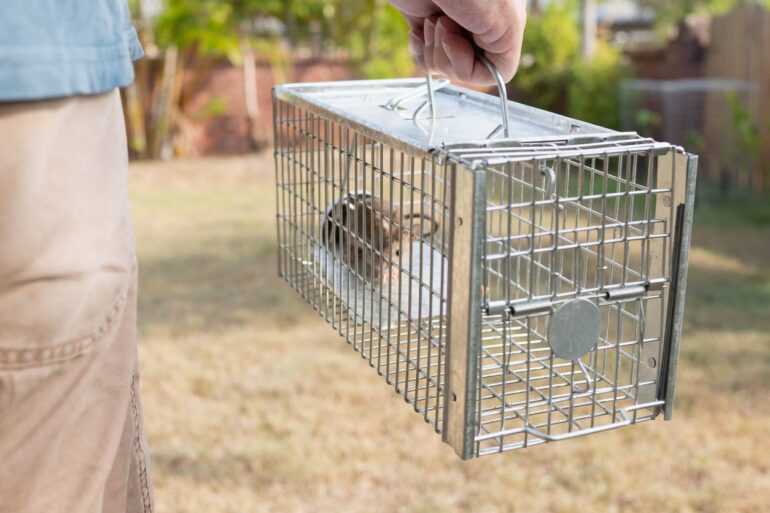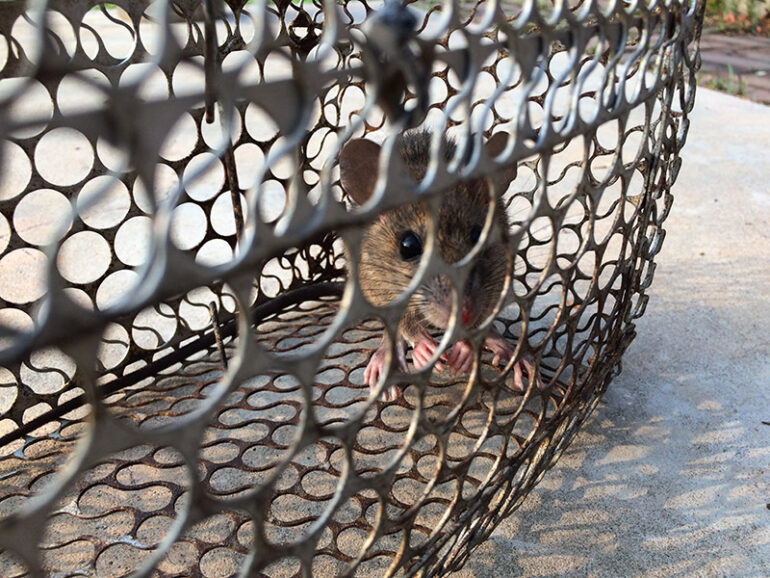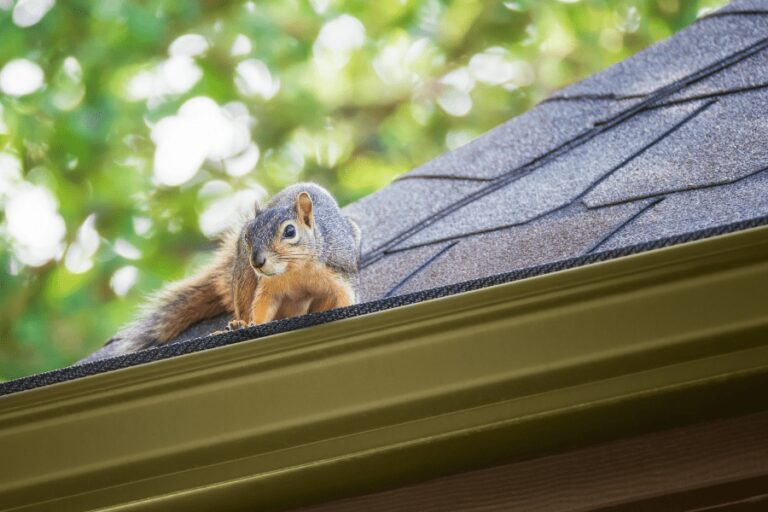Nuisance wildlife can cause damage to property, homes, buildings, crops, lawns, gardens, and pets. They also threaten humans because they spread disease through attacks or cause automobile accidents. The good news is that Lubbock has several companies offering nuisance wildlife removal and management services. The Lubbock animal control specialists will safely capture and remove various vermin.
The following are tips for controlling various home animals.
Opossums

Opossums are North America’s only marsupial mammals. Mothers carry their young in a pouch for two to three months after birth, then on their back while away from the den for an additional one to two months. Opossums are solitary, nocturnal animals. Usually slow-moving, they may play dead when surprised and unable to escape. They are adaptable to their surroundings, meaning they can make a home wherever they can find adequate food and shelter.
The best way to keep opossums from visiting homes is to ensure outdoor garbage cans have a tightly sealed lid and pet food is not left out overnight.
Skunks
Skunks, while rarely a problem inside city limits, can cause a not-so-fun evening if one stumbles across them and surprises them and ends up being sprayed. Some signs a skunk has taken up residence on the property are:
- A strong, musky odor
- Shallow holes in the yard from foraging
- Turned over potted plants
- Damage to gardens
Skunks are nocturnal, usually venturing out only at night. An occasional skunk in the area isn’t a cause for alarm and can be beneficial—skunks eat insects and other small pests such as mice and rats.
Skunk Trapping and Treatment Service

Skunks are usually attracted by garbage and pet food left out at night, an easy site to make a den, such as under decks and sheds. Making sure garbage cans are sealed and pet food is put away can go a long way toward preventing a skunk from taking up residence on one’s property. Confirm access to decks, and underneath tool sheds are blocked, and crawlspaces underneath pier and beam foundation homes are sealed will help keep skunks from moving in.
Foxes
While relatively harmless to humans, foxes can prey on small animals and livestock. Foxes are also susceptible to rabies, but seeing a rabid fox is rare. Foxes may take up residence on one’s property to breed their young if food and shelter conditions are ideal. Hazing, the act of disturbing an animal’s sense of security in a way that causes it to leave its den, is commonly used to evict unwanted foxes.
Squirrels
Squirrels aren’t usually a cause for concern, but every once in a while, one might have a problem with a few enterprising squirrels nesting in their attic or chimney. Squirrels in the attic can gnaw on support beams and wires, damaging your home.
Squirrels can fall into the walls of homes, eventually dying if they can’t escape. The presence of a dead animal in the home will attract other unwanted pests, such as flies and maggots.
Squirrel Removal and Treatment Services

Lubbock animal control experts will employ Integrated Pest Management (IPM) when squirrels are present:
- Trapping and removal of any squirrels present
- Locating and blocking off any points of entry for squirrels to enter your home
- Repellent applications in and around issues of entry
Once squirrels are removed, property owners will want to check their attic thoroughly for exposed wiring, which could potentially cause a fire.
Armadillos
Armadillos are common in West Texas and are digging machines that tear up yards and gardens looking for food. Some armadillos can be infected with leprosy. It is rare for humans to contract the disease from an armadillo. Keep these unwanted pests out of the yard and garden by calling the Lubbock animal control experts.
Lubbock animal control experts protect homes and families all year long. They use BT Armor, a customized, recurring animal management service, to provide consistent protection against indoor and outdoor animals and save homeowners money.
Mice and Rats

Most people consider mice and rats to be unacceptable in their homes. Mice are more common and cause more damage. Mice are capable of producing 6-10 liters in one year. The greatest economic impact from mice is not due to how much they eat but what must be thrown out because of damage or contamination.
Lubbock animal control specialists treat rodent problems inside and outside homes. They begin by placing special bait stations around the exterior perimeters of affected homes. The first goal is to capture the animal before it makes its way inside.
Interestingly, mice and rats are not attracted to the bait station by the bait as much as they are by the entry hole. To study the behavior and culture of rodents, mice and rats like to hide in small, dark places, so they seek out the bait station and don’t hesitate to enter. Once the rodent eats the bait, it becomes dehydrated and seeks water. This draws the dying animals away from their homes.
Recurring animal management is crucial to remove persistent pests and ensure new ones don’t take their place. Lubbock animal control will work to help homeowners with the following:
- It keeps them Time & Money
- Saves their Health
- Protects their Home from Wildlife
- Saves their Sanity
Do Lubbock animal control companies offer animal control coupons and discounts?
Many home animal control experts in Lubbock offer animal control coupons and discounts. Therefore, residents are advised to take advantage of these coupons and discounts to eliminate animals from their homes.
Free estimates, which include onsite inspections to locate an entry point, are included. The only exceptions are termites and bed bugs, where experts provide free estimates but charge for comprehensive inspections. However, if one chooses to use the services of Lubbock animal control specialists, they will reimburse for the cost of the Squirrels/ Foxes inspection.
Our complimentary eaves treatment is performed outside the home during regular treatments and prevents nesting and easy entry.

